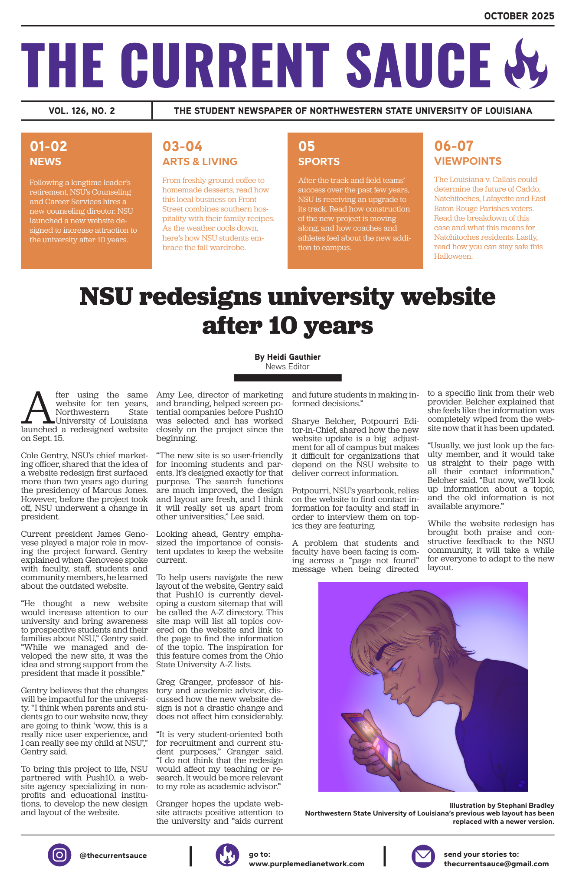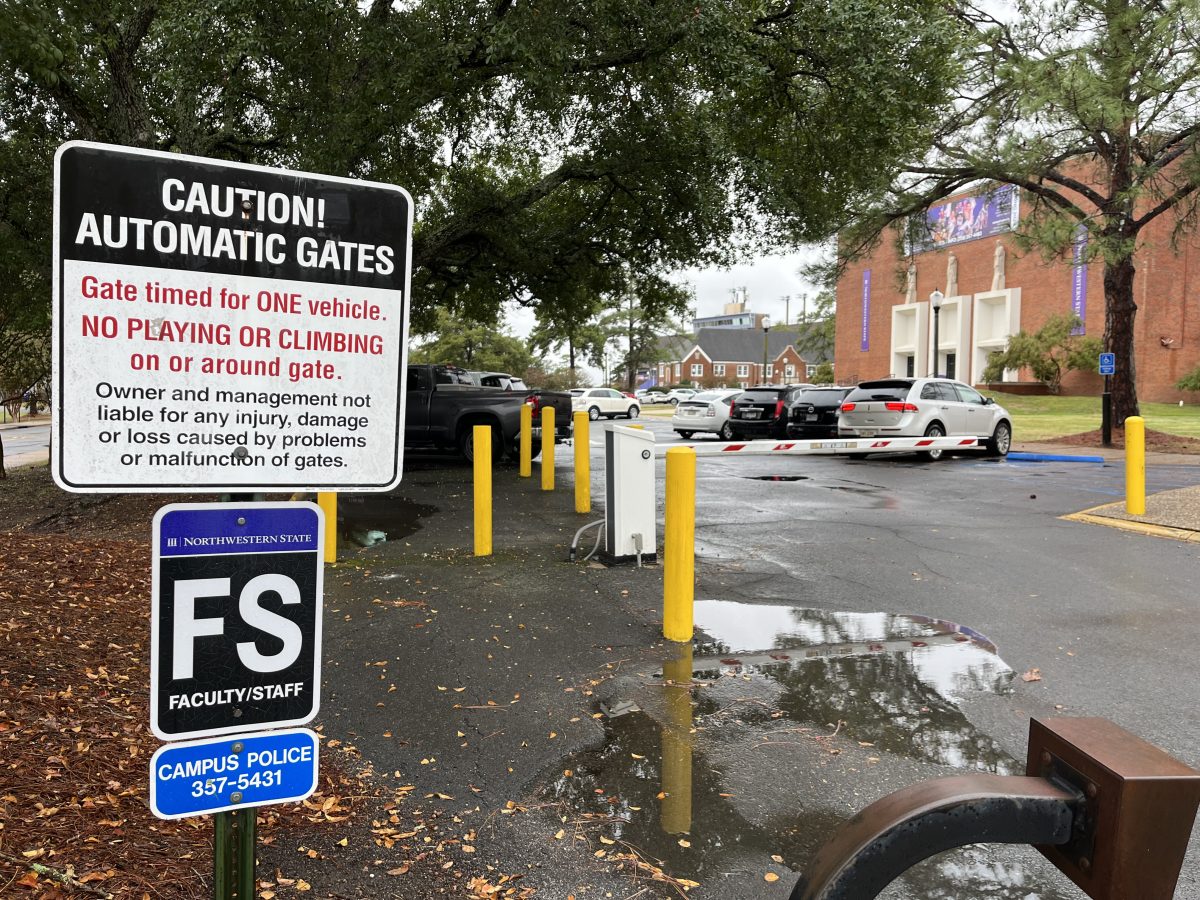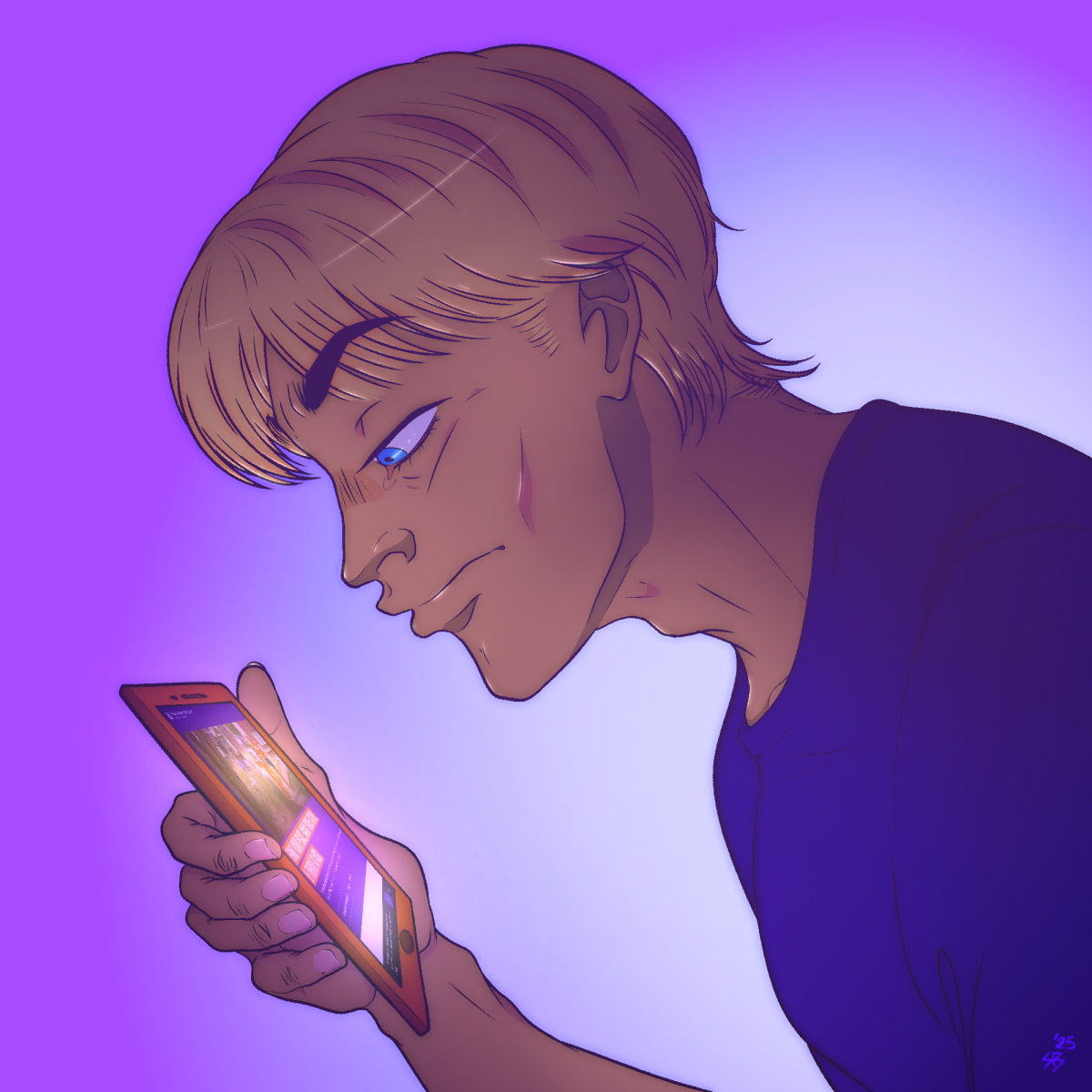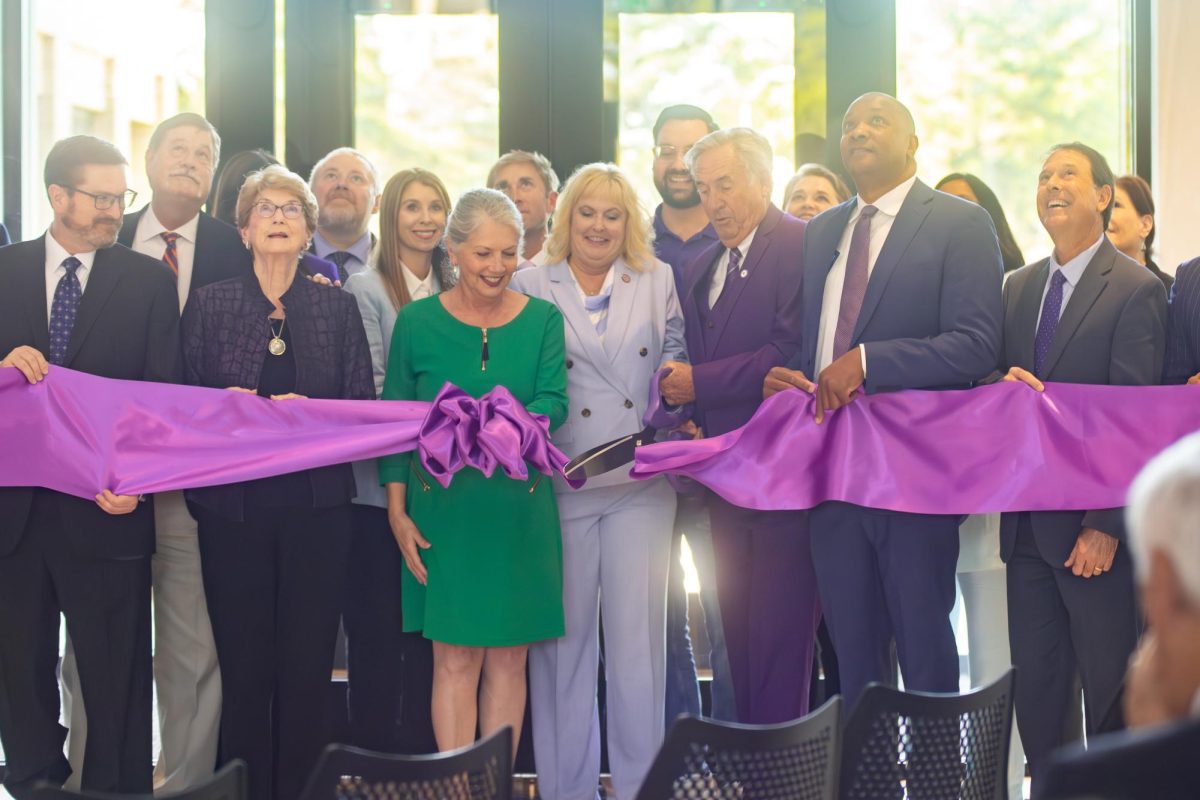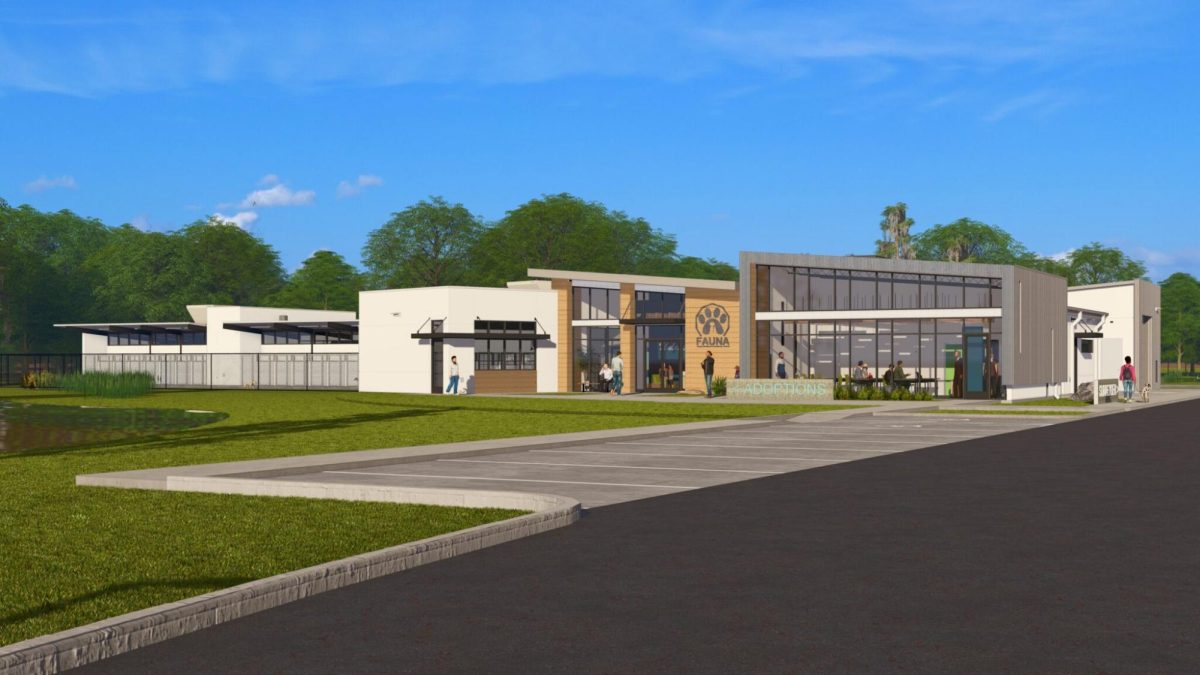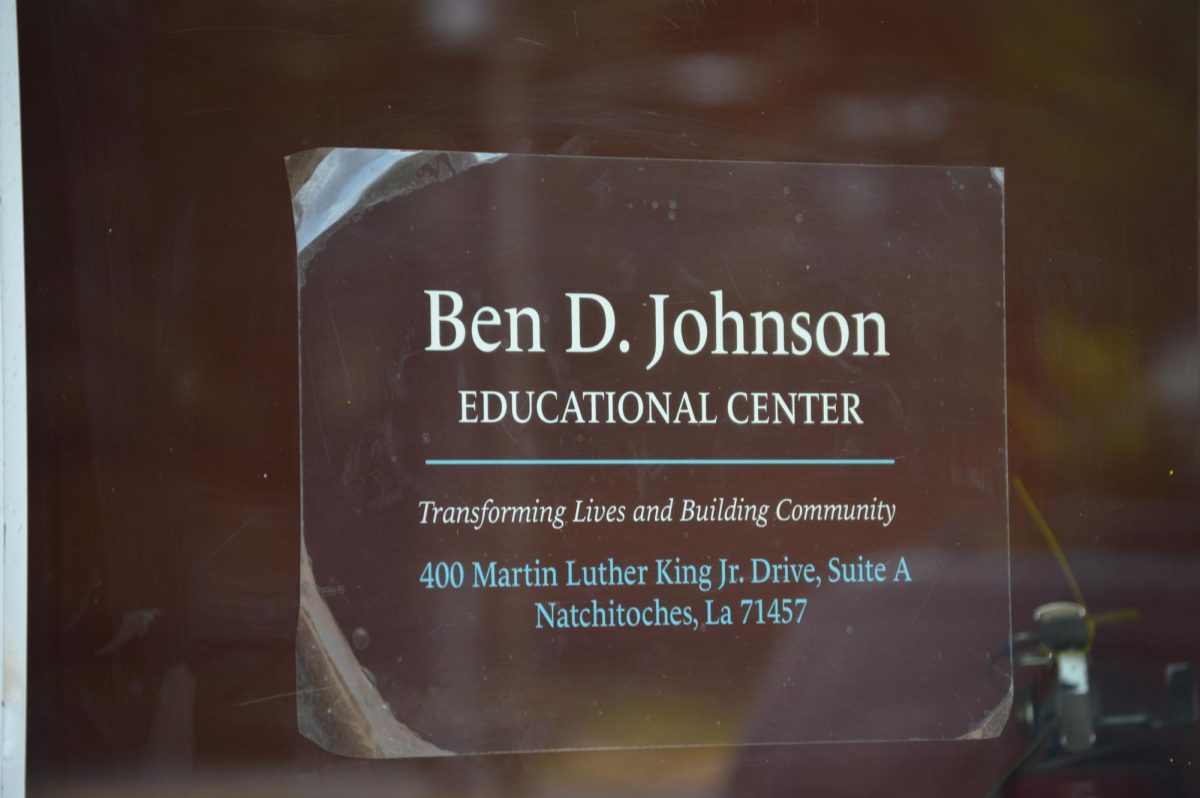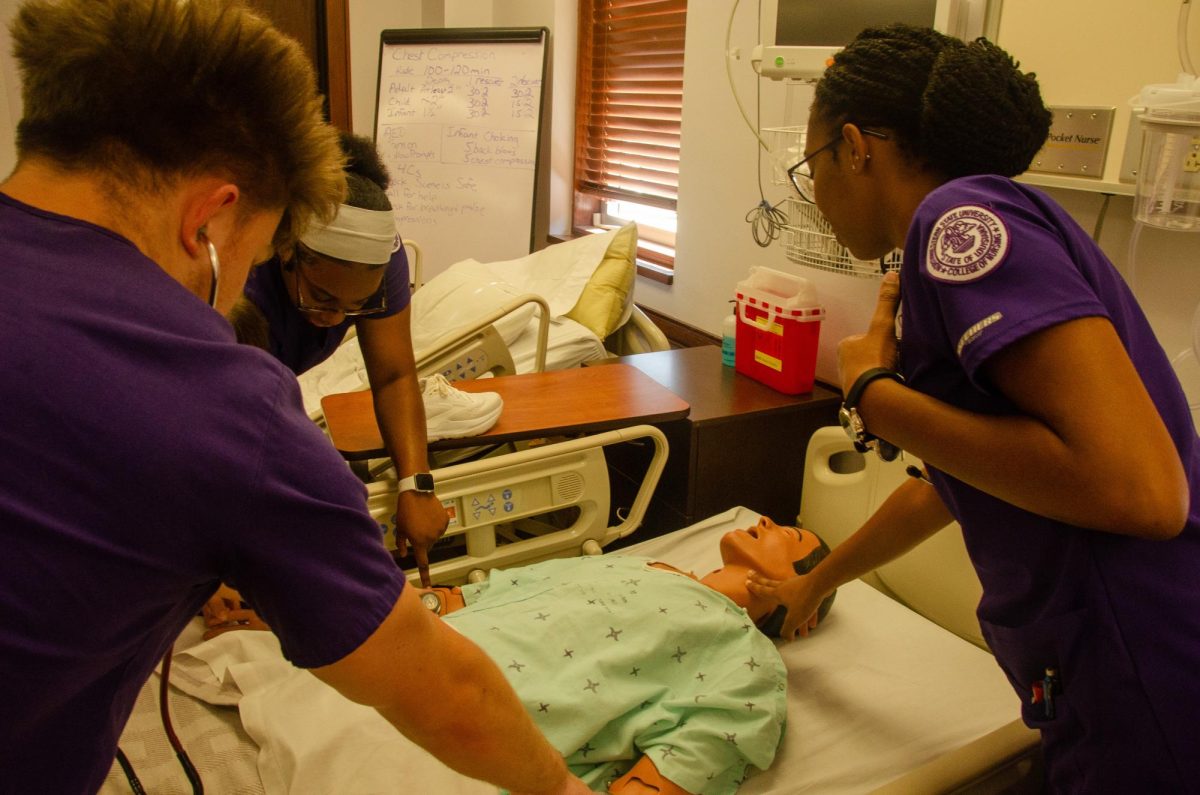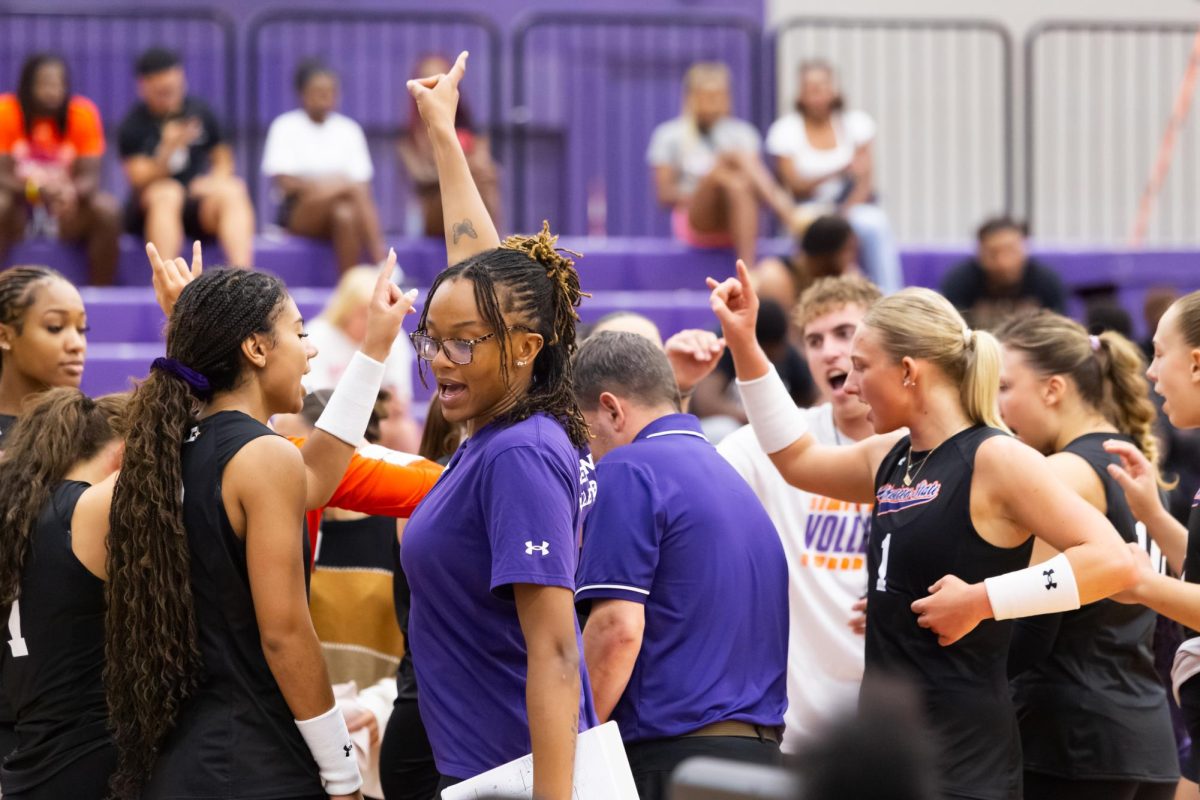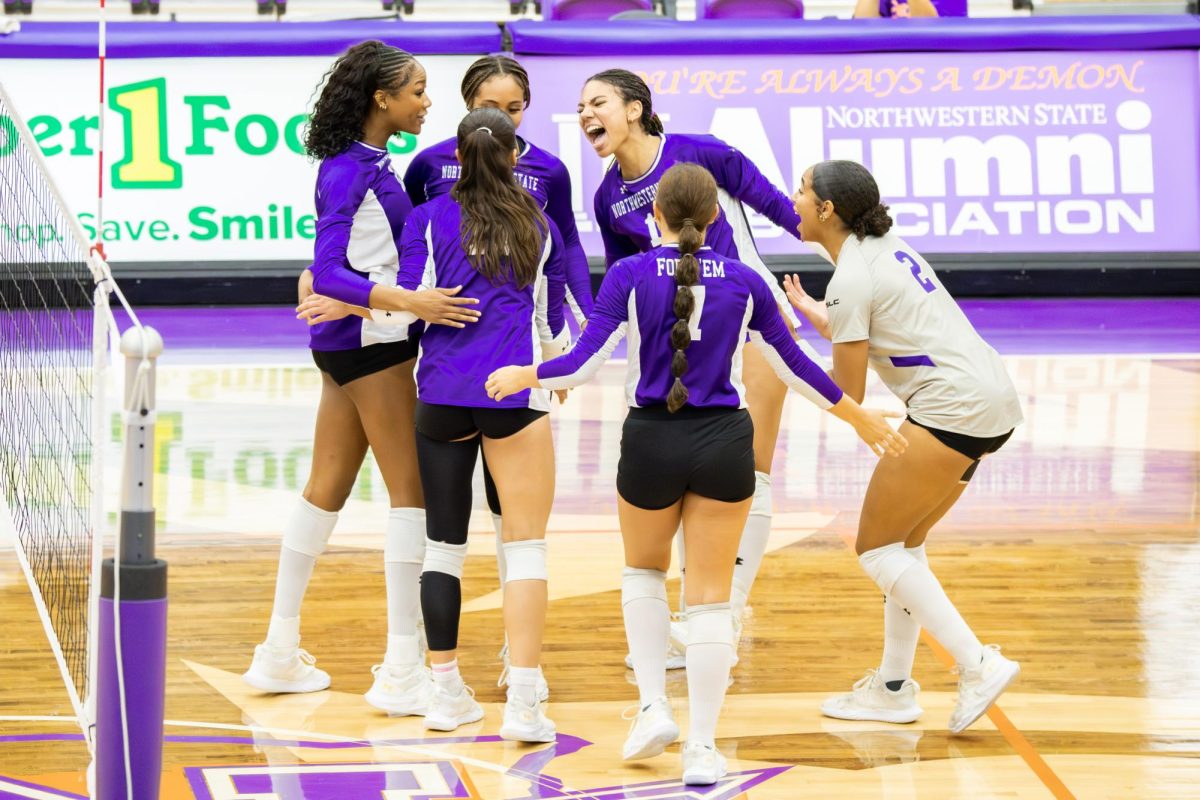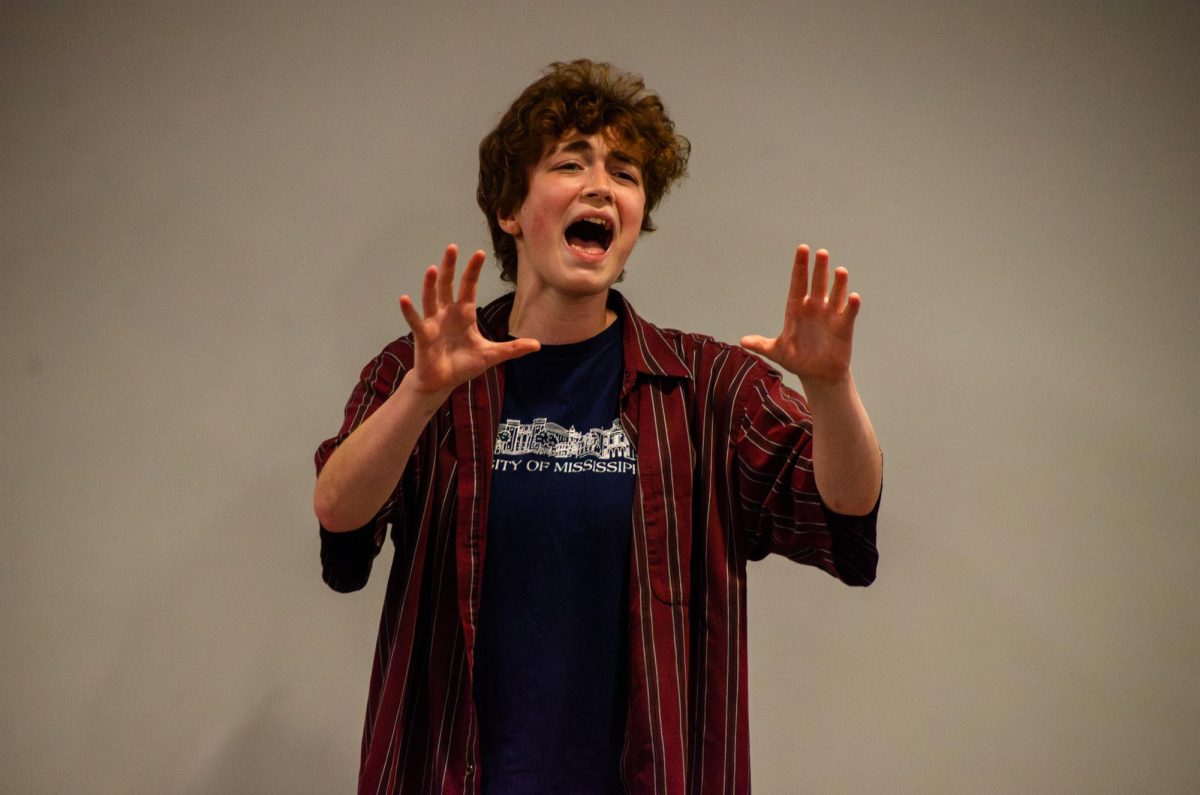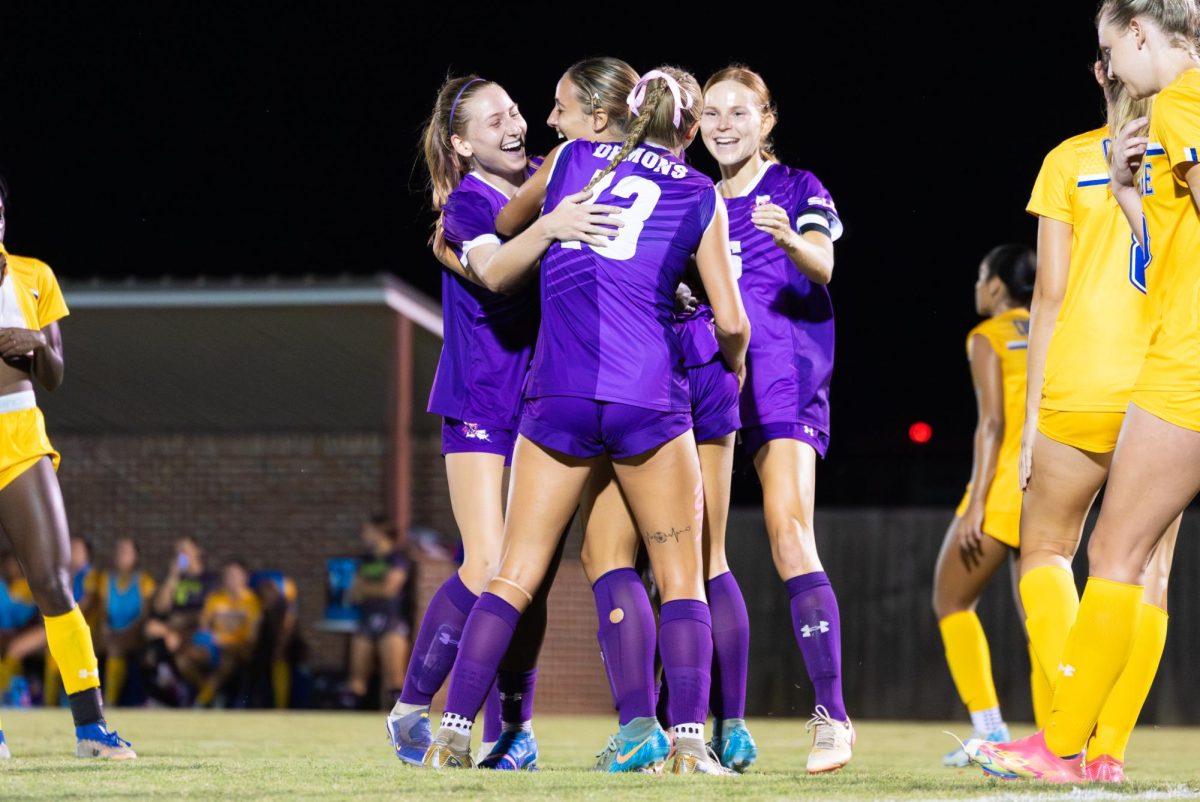As with any controversy, opinions vary based on perspective. However, the controversy of parking is a unanimous and unavoidable experience for anyone, including faculty and staff.
Northwestern State University of Louisiana faculty and staff have voiced their perspectives and opinions regarding the parking issues in the faculty/staff lots on campus.
Wesley Harrell, the University Police captain, frequently notices students parking in faculty/staff parking areas, which remains a major concern for faculty members.
“A lot of students park in faculty/staff lots, then faculty start calling. Our dispatchers are emailing me about it, and we have to send officers, but we just want to make sure we are keeping everything safer,” Harrell said.
Harrell believes that the parking lot’s capacity isn’t the issue; rather, it’s the responsibility of students to park in their designated zones that creates the problem.
“If the residential students park where they’re supposed to park, there’s plenty of room for the commuters and plenty of room for all. If the commuters park where they’re supposed to park, there’s plenty of room in housing to park. Nobody needs to park in a faculty lot,” Harrell said. “Students need to make sure they’re parking in the right parking lot.”
Kent Peacock, an assistant professor of history, specifies that certain faculty/staff lots experience more issues, but he believes that NSU has sufficient space for student parking.
“I would say the issue is with certain lots; there are certainly enough parking spaces on campus overall, but certain lots, there are issues,” Peacock said.
Peacock wonders if the struggles might be related to student awareness.
“Honestly, I don’t know how aware students are that they’re only supposed to be parking in certain lots, so I wonder if a lot of students just aren’t aware,” Peacock said.
Traci LaBom-Norris, the director of Accountability and Student Conduct, agrees that NSU has an adequate parking infrastructure to accommodate every student’s needs. She believes students need to be aware.
“We as a university can actually resolve this issue simply by everybody following the designated zones. We do have adequate space, I think it’s just that everyone just has to be mindful of their designated zones,” LaBom-Norris said.
LaBom-Norris’s office, situated on the third floor of the Student Union, often finds a full parking lot.
“The Student Union is a local spot so people are gravitating to our parking lot. But the people who are assigned, which are the faculty/staff, we end up not having an adequate amount of space for ourselves,” LaBom-Norris said. “I can actually say that personally, because there have been times where there were actually no spots available at all.”
Typically, faculty/staff lots feature gate arms, which open only with card access, assigned to faculty and staff members. However, NSU is experiencing technical issues with those gate arms in some faculty/staff lots.
“Our gates have been lifted so that means there was an overflow of students. So now we have students there, it doesn’t matter if they were commuters, residential… everyone. It’s kind of been a free for all,” LaBom-Norris said.
Brett Garfinkel, the department head of Theatre and Dance, believes that the malfunctioning gate arms have increased parking difficulties this semester.
“I do not have any major parking issues ‘cause there’s only one lot that I park in, which is the CAPA (Dear School of Creative and Performing Arts) faculty parking lot, but ever since the gate stopped working there has been lots of problems with students parking in the lot,” Garfinkel said.
While faulty gate arms may contribute to the problem, Garfinkel also suggests that the signage in faculty/staff lots can cause confusion.
“The signage for faculty/staff just shows an ‘F’ and an ‘S’ in a black box with white letters and in very small print underneath it, it says ‘faculty/staff parking’ which is not always clear for students that are rushing to class,” Garfinkel said. “Yes, there’s been a lot of students parking in the faculty lot, but I think a lot of them are unclear that it’s a faculty lot because the gate is not working.”
Garfinkel believes the only solution lies in repairing the gate arms.
“I think the only thing that would fix this is to get those gates working again,” Garfinkel said.
Malfunctions in gate arms began when the previous parts supplier went out of business. John T. Dunn, the president of the faculty senate, elaborates on the plans to fix the gate arms in faculty/staff lots.
“The supplier of the gates was the sole producer of parts for the gates, but they recently went out of business so we found another supplier willing to take on repairs,” Dunn said.
However, Dunn also acknowledged that the manufacturing and supply of replacement parts has taken longer than expected. “The last I heard, gates should be coming back online in the near future,” he said.
While Dunn understands the inconveniences created by the malfunctioning gate arms for many faculty members, he personally has not encountered issues within the CAPA faculty lot.
“Personally, I have young kids, so I get here early enough to not have a problem. I also park in a lot that is big enough to support the number of people working in the building, but many other lots, however, are much smaller, and when students take up all the spaces, there is no place left for faculty to park,” Dunn said.
Paul Christopher, an associate professor of music, also parks in the CAPA faculty/staff lot and has not experienced any personal parking issues.
“I’m in this lot, so it’s never been a problem for me, but I do think there’s a problem even though it doesn’t impact me personally,” Christopher said.
Christopher expressed a more lenient perspective regarding parking issues.
“I mean, I don’t walk around paying attention to it. I do know it’s a problem for a lot of students, but have I ever had a problem with students parking here? No,” Christopher said. “If I can’t get in there, I can always find another place to park, but once again, that’s just me.”
As for solutions for parking problems, Christopher acknowledges the presence of an endless cycle of questions.
“There’s another point… police the lot, but…there’s other things they can be making sure are secure. It’s an endless cycle, so clearly the best thing to do would be to just add more lots, but where do we add the lots? I don’t even know,” Christopher said.
However, Christopher said the only thing for certain is that there is an issue for students parking at NSU.
“I do agree it’s a problem, I know it’s a problem. I know it’s a problem especially for students, I just don’t know what exactly we should do,” Christopher said.
Adam Philley, the associate director of choral activities, shares a similar understanding of the student perspective on parking struggles.
“I mean, I only park in like, one spot, so I don’t know that there’s a serious parking issue here. But times when I come down for social events, it is kind of an issue; like Gala or football games, it’s difficult, so I can see student’s struggle,” Philley said.
Though Philley understands the students perspective, he differentiates times when faculty need priority.
“Especially if I’m coming back to teach, I do think that I should have that priority parking, but if I’m just here to see a performance then we’re all kind of the same there. I feel like it’s a faculty lot, and I’m faculty. So, I should have the first right to park there, but I also understand. So I’m not going to roll down my window and yell at you, that’s not how I feel about that,” Philley said.
Philley has never experienced a situation where he felt the need to alert parking security due to a parking issue.
“I haven’t ever had a situation where I felt like I needed to call, but that’s not to say my experience stands for all. My experience may be different from others,” Philley said.
In contrast to Philley, Pete Gregory, a professor of anthropology, predominantly uses the faculty lot adjacent to John S. Kyser Hall, an area often patrolled by University Police.
“They give a lot of tickets out here now. They pretty much control this lot, and students use it a lot, but they come out and write a lot of tickets so it’s not filled up now like it was a couple weeks ago,” Gregory said.
Harrell, the University Police Captain, clarified the consequences associated with parking citations.
“Citations start at $45, then they only go up from there, and that’s for all improper parking, like if somebody parks in a handicap spot, etcetera,” Harrell said.
University Police typically grant a grace period for students to adjust themselves to campus parking policies, and aim only to provide a safer environment.
“We don’t like to write tickets, but that’s a part of our job and tickets are a necessity to make the campus safer. The parking and safety committee sets that so we don’t benefit monetarily, the only benefit we’re aiming for is to make the campus safer,” Harrell said.
Gregory, however, believes that the grace period does more harm than help for students.
“With the grace period, students get used to it and don’t think they’re going to get tickets, then they start giving tickets and students get upset because ‘I been parking here so why am I getting a ticket now for,’” Gregory said. “I think with the grace period, maybe they could just not have the grace period, that way students wouldn’t feel like they could get in here.”
He acknowledged that though he has his own experience and opinions, so do many other universities.
“It’s a worldwide problem. I can’t think of a campus anywhere I’ve ever been on that people didn’t have parking problems. Ours is wonderful compared to LSU (Louisiana State University),” Gregory said.
Nick Taylor, an assistant professor of New Media, Journalism and Communication Arts, compared the parking situation at NSU with that of other universities.
“I think, of course, I’ve been to different universities, there’s always parking issues. Is this any worse than any other university? Absolutely not. In fact, in a lot of ways, it’s better than a lot of universities,” Taylor said.
Taylor does, however, agree that there is a parking issue at NSU.
“Yes, students love to park in our lots, and I understand why. We’re right here, they’re in a hurry, they see open spots. So students do park there often, that is an issue,” Taylor said.
Parking problems remain an inevitable experience of university life, but Taylor believes NSU maintains faculty/staff lots well.
“I mean we have more cars, sometimes, than spots,” Taylor said. “I think the university overall, if I was giving them a grade, I’d give them a B+ for taking care of parking issues, which is much better than most universities.”
Parking issues differ among all university campuses, as do opinions about them, as well as possibilities of resolutions. Taylor emphasized the need for a continuous assessment and adaptation of parking policies and solutions.
“Parking policies and parking issues have got to be completely, or continually looked at and updated,” Taylor said. “You’re never gonna solve them because as soon as you solve one issue then another issue is going to come up. It’s just something we gotta continually handle.”

